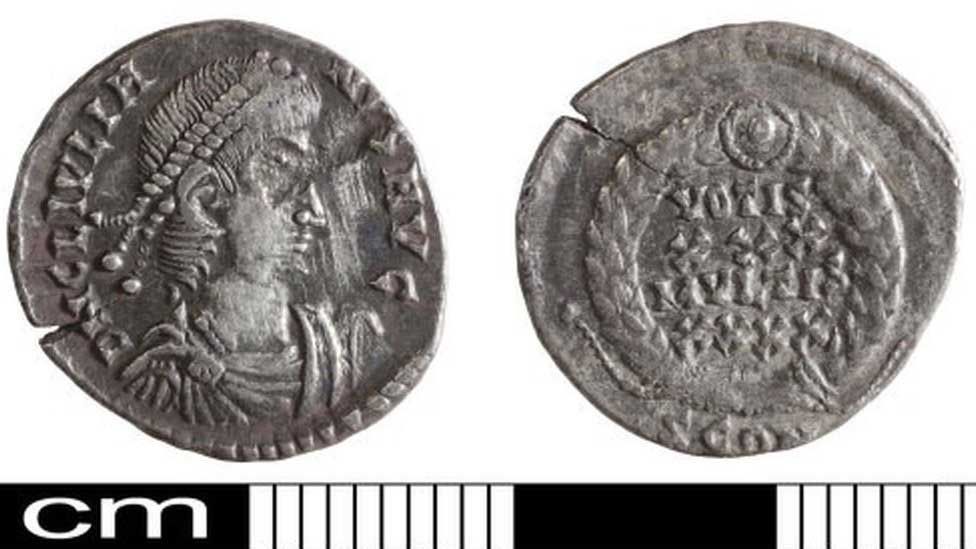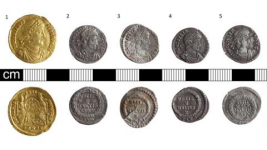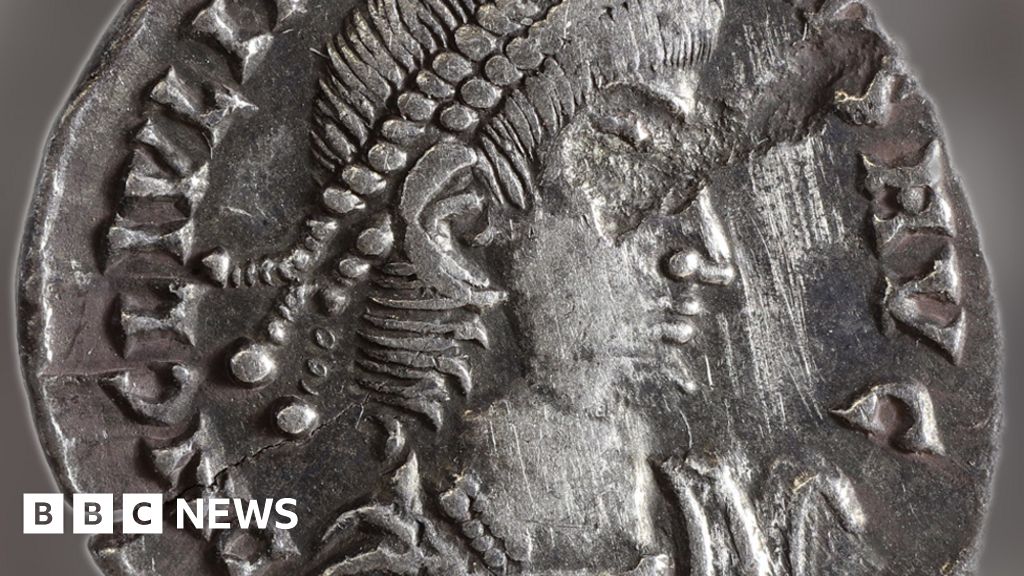Pagan Roman emperor coin found in Norfolk field 'deliberately damaged'
BBC News8th August 2021

A Roman coin of the last pagan emperor which might have been deliberately damaged as an "act of erasure" was found by two metal detectorists.
It depicts Julian the Apostate, part of Rome's first Christian dynasty, who revived paganism when he became the emperor in AD361.
The coin was part of a hoard found near King's Lynn, Norfolk, in March 2020.
It appears to have been hidden during the AD367 Barbarian Conspiracy, a time of great turmoil in Roman Britain.
A British Museum expert suggested a gouge on the coin around Julian's eyes could be an "act of erasure against the last pagan emperor".
But Adrian Marsden, a numismatist or coin specialist with the Norfolk Historic Environment Service, believes it looks more like accidental damage, as other Julian coins discovered in the hoard remain untouched.

It is part of a hoard of Roman gold and silver coins which is going through the treasure inquest process
Constantine I (AD324 to 337) converted to Christianity and by the AD350s it was the empire's official religion.
Dr Marsden said his nephew Julian, who was raised a Christian, was appointed caesar, or deputy emperor, in AD355.
He led a successful, lightning campaign against the German tribes and on becoming emperor tried to reintroduce paganism.
But while on campaign in Persia, he "gets himself killed by a stray arrow" and died after less than two years in charge, to be succeeded by Christians, said Dr Marsden.
The coin was part of a hoard of at least 15 gold and 226 silver coins which were found in a field near King's Lynn.
It was hidden at the time of Barbarian Conspiracy era, an alleged invasion attempt by Picts and Saxons.
But with just one source claiming it took place and no "archaeological evidence for an invasion, we do wonder whether the turmoil might have been an internal rebellion", Dr Marsden said.

Pagan Roman emperor coin found in Norfolk field 'deliberately damaged'
Emperor Julian wanted to revive pagan worship across the Empire after it officially became Christian.
www.bbc.co.uk